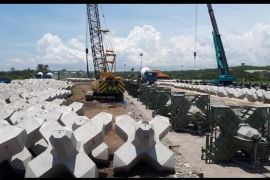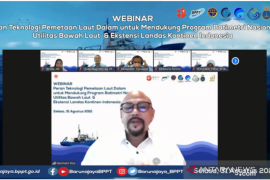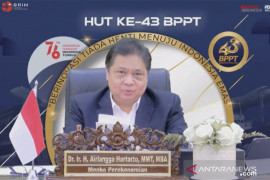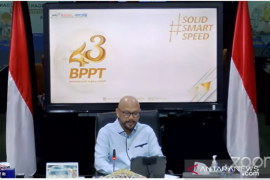"We can produce salt more efficiently and quickly. We have less land for salt production where salt farmers hold saline water and leave it for 14 days to crystallize. The process fails when the rain sets in. Hence, we have the technology to channel saline water and circulate it to increase its salinity," BPPT Head Unggul Priyanto noted here, Friday.
Priyanto has held a meeting with Vice President Jusuf Kalla, Coordinating Minister for Maritime Affairs Luhut Binsar Pandjaitan, and Coordinating Minister for Economic Affairs Darmin Nasution to discuss the issue.
He explained that the technology will need a wider area to hold seawater that will be crystallized in four days. Water, with high salt concentration, will be transferred to the farmers land.
The technology will allow farmers to reduce the production process in their land and harvest salt after four days, as compared to the previous process that would take 12 days.
Salt production is expected to reach 50 thousand tons per year following the implementation of the technology, and the country can stop salt imports, he added.
In addition to salt, the technology can help to produce water for the isotonic drink industry and fish farming.
The technology will be applied in East and West Nusa Tenggara, South Sulawesi, and Jeneponto that have become salt production centers.
"The coordinating minister for maritime affairs will coordinate on the matter. If this succeeds, we will replicate it in other areas," he noted.
Meanwhile, Eniyah L. Dewi, the agencys deputy for agroindustry and biotechnology, said it will need 400 hectares of land, two dams, and 300 hectares of land for the evaporation process to ensure optimal implementation of the technology.
Currently, the farmers land for salt production reaches 25 thousand hectares.
"It is still possible to expand the land area in NTT. However, in Java and Madura, most of the land is owned by farmers. Hence, we will need to find another solution for this. We can bring together farmers under one corporate. This has been studied in Central Java," Dewi explained.(*)
Editor: Heru Purwanto
Copyright © ANTARA 2017










